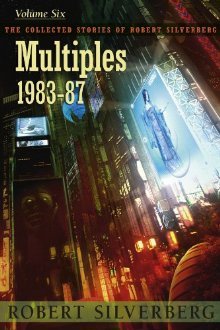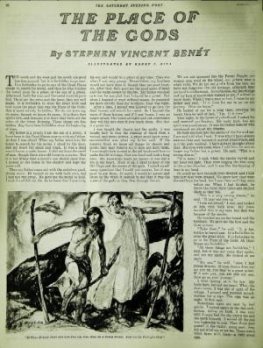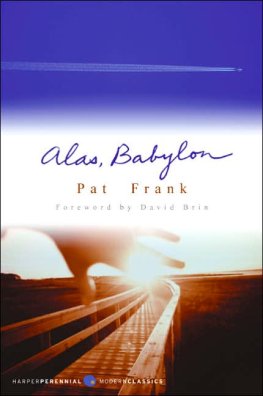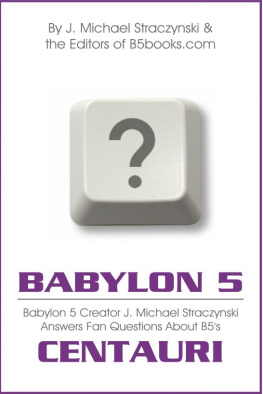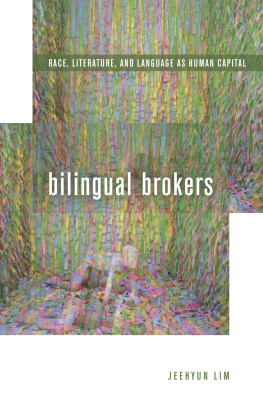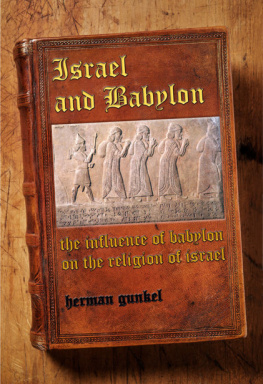Self - American Babylon: race and the struggle for postwar Oakland
Here you can read online Self - American Babylon: race and the struggle for postwar Oakland full text of the book (entire story) in english for free. Download pdf and epub, get meaning, cover and reviews about this ebook. City: Oakland (Calif);Oakland Region (Calif.);Princeton;N.J;California;Oakland Region, year: 2003;2013, publisher: Princeton University Press, genre: Politics. Description of the work, (preface) as well as reviews are available. Best literature library LitArk.com created for fans of good reading and offers a wide selection of genres:
Romance novel
Science fiction
Adventure
Detective
Science
History
Home and family
Prose
Art
Politics
Computer
Non-fiction
Religion
Business
Children
Humor
Choose a favorite category and find really read worthwhile books. Enjoy immersion in the world of imagination, feel the emotions of the characters or learn something new for yourself, make an fascinating discovery.
- Book:American Babylon: race and the struggle for postwar Oakland
- Author:
- Publisher:Princeton University Press
- Genre:
- Year:2003;2013
- City:Oakland (Calif);Oakland Region (Calif.);Princeton;N.J;California;Oakland Region
- Rating:5 / 5
- Favourites:Add to favourites
- Your mark:
- 100
- 1
- 2
- 3
- 4
- 5
American Babylon: race and the struggle for postwar Oakland: summary, description and annotation
We offer to read an annotation, description, summary or preface (depends on what the author of the book "American Babylon: race and the struggle for postwar Oakland" wrote himself). If you haven't found the necessary information about the book — write in the comments, we will try to find it.
Self: author's other books
Who wrote American Babylon: race and the struggle for postwar Oakland? Find out the surname, the name of the author of the book and a list of all author's works by series.
American Babylon: race and the struggle for postwar Oakland — read online for free the complete book (whole text) full work
Below is the text of the book, divided by pages. System saving the place of the last page read, allows you to conveniently read the book "American Babylon: race and the struggle for postwar Oakland" online for free, without having to search again every time where you left off. Put a bookmark, and you can go to the page where you finished reading at any time.
Font size:
Interval:
Bookmark:

AMERICAN BABYLON
POLITICS AND SOCIETY IN TWENTIETH-CENTURY AMERICA
Series Editors
William Chafe, Gary Gerstle, Linda Gordon, and Julian Zelizer
A list of titles in this series appears at the back of the book
AMERICAN BABYLON
RACE AND THE STRUGGLE FOR POSTWAR OAKLAND
Robert O. Self
PRINCETON UNIVERSITY PRESS PRINCETON AND OXFORD
Copyright 2003 by Princeton University Press
Published by Princeton University Press, 41 William Street, Princeton, New Jersey 08540
In the United Kingdom: Princeton University Press, 3 Market Place, Woodstock, Oxfordshire OX20 ISY
All Rights Reserved
Library of Congress Cataloging-in-Publication Data
Self, Robert O., 1968
American Babylon: race and the struggle for postwar Oakland/Robert O. Self.
p. cm. (Politics and society in twentieth-century America)
Includes bibliographical references and index.
ISBN 0-691-07026-1
1. Oakland Region (Calif.)Race relations. 2. Oakland Region (Calif.)Politics and government20th century. 3. Oakland Region (Calif.)Economic conditions20th century. 4. African AmericansCivil rightsCaliforniaOakland RegionHistory20th century. 5. Black powerCaliforniaOakland RegionHistory20th century. 6. Property taxPolitical aspectsCaliforniaOakland RegionHistory20th century. 7. HomeownersCaliforniaOakland RegionPolitical activity. 8. Social classesCaliforniaOakland RegionHistory20th century. 9. City and town lifeCaliforniaOakland RegionHistory20th century. 10. Suburban lifeCaliforniaOakland RegionHistory20th century. I. Title. II. Series.
F869.O2S455 2003
979.46600496073dc21 2003040461
British Library Cataloging-in-Publication Data is available
This book has been composed in Sabon
Printed on acid-free paper.
www.pupress.princeton.edu
Printed in the United States of America
10 9 8 7 6 5 4 3 2 1
For Mom and Dad and Jennifer
Illustrations _____________________________
FIGURES
MAPS
Acknowledgments _____________________________
THE INSPIRATION AND SUPPORT of colleagues, friends, and family made this book possible. There are not enough pages here to thank them properly or enough time to express the depth of my gratitude. James Gregory and Richard White shepherded the project from the beginning with grace and patient attention. Jim has exerted a steady, critical, indispensable influence on my thinking and writing. Richard has been a brilliant editor and sage advisor and continues to push me toward big ideas. His scholarly standards and intellectual vision have marked out new territory for a generation of Americanists who have worked with him. Thomas Sugrue expressed faith in the project early and has done more to assist in its realization than I had a right to expect. His advice and readings of the manuscript have been indispensable. All three have been extraordinary mentors and good friends, and I owe them an enormous debt.
Colleagues at the University of Michigan, including Paul Anderson, Charlie Bright, John Carson, Fred Cooper, Beate Dignas, Geoff Eley, Kevin Gaines, Val Kivelson, Michele Mitchell, Maria Montoya, Gina Morantz-Sanchez, Rebecca Scott, Maris Vinovskis, and Penny Von Eschen made Ann Arbor a wonderful place to write and teach and offered support at critical junctures. I would especially like to thank Matthew Countryman, Scott Kurashige, and Matthew Lassiter for conversations about our shared research interests, as well as timely critical readings, that immeasurably improved the book. A special thank you to Earl Lewis for supporting this project as both historian and dean. Colleagues in the Michigan Society of Fellows, especially James Boyd White (director), Sharad Chari, Oz Frankel, Thomas Guglielmo, Carla Mazzio, Alka Patel, Monica Prasad, Daniel Rothenberg, Adam Smith, and Peter Wilf read drafts of several chapters, gave thoughtful comments, and warmly encouraged me. I owe a special, unpayable debt to Tiff Holmes. Thank you all.
Thank you to Phil Ethington, who read the manuscript at a crucial early stage and offered both insightful criticism and encouragement. For conversations and generously shared insights and readings that shaped the book in important ways, I am particularly grateful to Linda Nash, Becky Nicolaides, and Wendell Pritchett. For reading parts of the manuscript and for unselfish and timely help along the way, I would like to thank Kate Brown, Clay Carson, George Chauncey, John Findlay, Roberta Gold, James Grossman, Arnold Hirsch, Thomas Holt, William Issel, Peniel Joseph, Michael Katz, Gretchen Lemke-Santangelo, Carl Nightingale, George Sanchez, Amanda Seligman, Heather Thompson, Andy Wiese, and Charles Wollenberg. Joe William Trotter and Tera Hunter at the Center for Afro-American Urban Studies and the Economy at Carnegie Mellon University hosted a conference on African Americans in the postindustrial city in October 2001 that brought together an incredibly stimulating group. Thanks to them and to Ronald Bayor, Venus Green, Karl Johnson, Kenneth Kusmer, Charles Payne, Richard Pierce, and Joel Tarr. Martha Biondi encountered this book late in its evolution and gave it critical attention and showed great care for its realization. Her scholarly and intellectual example have been enormously important. At Princeton University Press, Thomas LeBien showed great patience and skill with the manuscript and made this book what it is. My deep gratitude extends as well to Brigitta van Rheinberg, who did wonderful work as editor when she inherited the book. Finally, many thanks to the people of Oakland and the East Bay who took the time to speak with me. Special thanks to Paul Cobb, Norvel Smith, and David Hilliard. To all of the above, your collaboration was essential. The mistakes remain my own.
The good graces of many people and institutions made the research for the book possible. The staff of the Institute for Governmental Studies at the University of California at Berkeley, especially Terry Dean, Ron Heckart, and Marc Levin, deserve enormous credit for providing the material that lies behind the book. Many thanks to the staff of the Bancroft Library, also at Berkeley; Bill Sturm of the Oakland History Room, Oakland Public Library; Robert Haynes and Veronica Lee of the African American Museum and Library at Oakland; Ron Riesterer and the staff of the library at the Oakland Tribune; the staff of the history department at the Oakland Museum of California; Susan Sherwood at the Labor Archives and Research Center, San Francisco State University; Gene Vrana at the International Longshoremens and Warehousemens Union Library in San Francisco; the staff of the Stanford University Archives; the Ford Foundation; and the staffs of the municipal libraries of San Leandro, Fremont, and Milpitas. Grants from the National Science Foundation, the U.S. Department of Housing and Urban Development, the American Philosophical Society, the graduate school at the University of Michigan, and the history department and graduate school at the University of Washington made the research and writing financially possible. Finally, I am grateful to Onno Brouwer, Trisha Wagner, and Erik Rundell at the University of Wisconsin Cartography Lab for their wonderful maps.
I could not have imagined undertaking this project without the support of family and friends. Grateful cannot begin to describe how I feel. My parents, Jim and Elise, have given beyond measure. Their example, especially of what familial love and commitment can be, has been a constant source of strength throughout this project and my life. Jennifer has been a gift as a sister, and as a woman she is, simply, incredible. Lise Nelson inspired and encouraged. I owe her a great deal. In Seattle, Kate and Devin Malkin, Ivan and Suzie Miller, Linda Becker, Janet Stecker, and the residents of Bob the House and Honn House made life there special, as did fellow historians Kathy Morse, Bonnie Christensen, and Margaret Paton Walsh. In San Francisco, Maggie Miller and Bill Christmas, and later Eamon, gave me far more than a place to crash. In Berkeley, Edie and Neill Rodman opened their home to me innumerable times. Thank you one and all, and to new friends and colleagues in Milwaukee and Chicago as well. All of you are deeply embedded in these pages.
Next pageFont size:
Interval:
Bookmark:
Similar books «American Babylon: race and the struggle for postwar Oakland»
Look at similar books to American Babylon: race and the struggle for postwar Oakland. We have selected literature similar in name and meaning in the hope of providing readers with more options to find new, interesting, not yet read works.
Discussion, reviews of the book American Babylon: race and the struggle for postwar Oakland and just readers' own opinions. Leave your comments, write what you think about the work, its meaning or the main characters. Specify what exactly you liked and what you didn't like, and why you think so.




